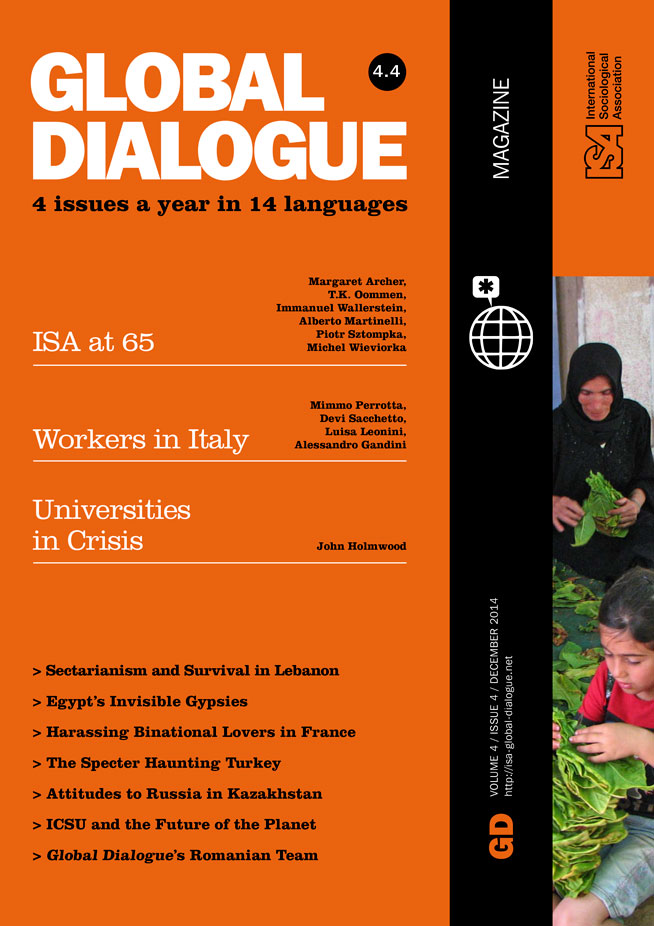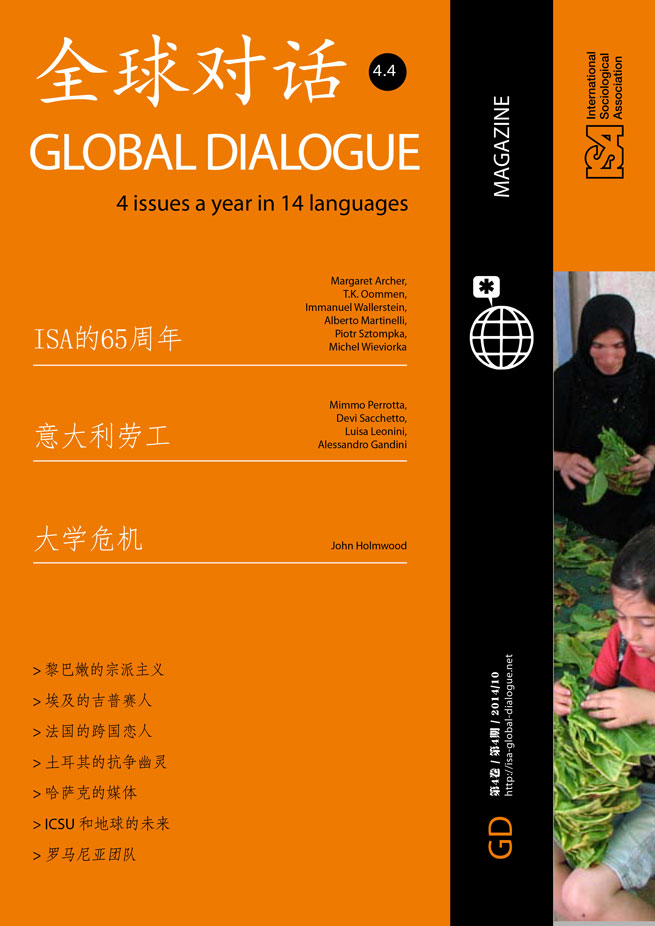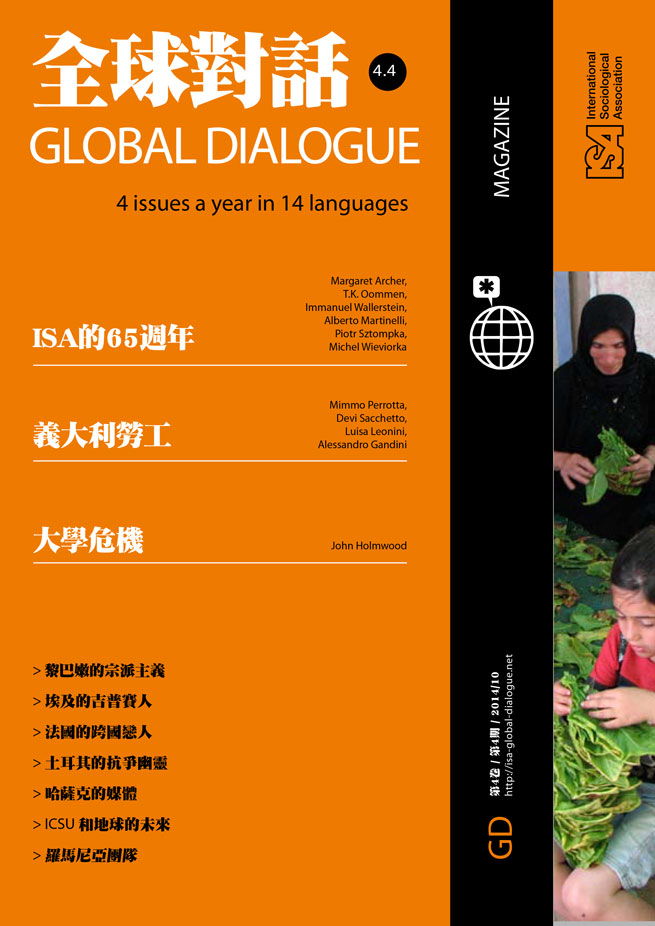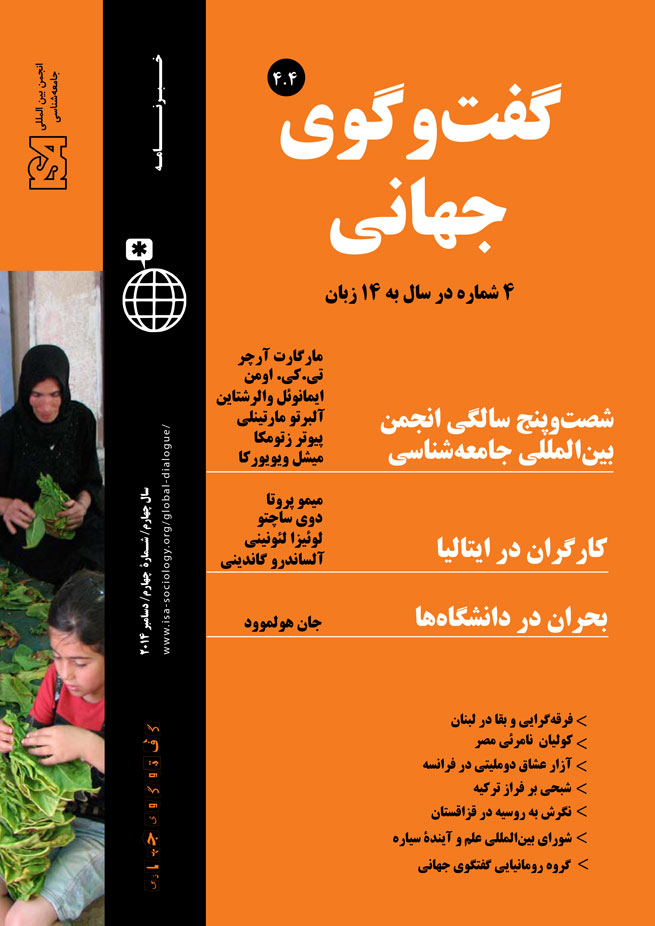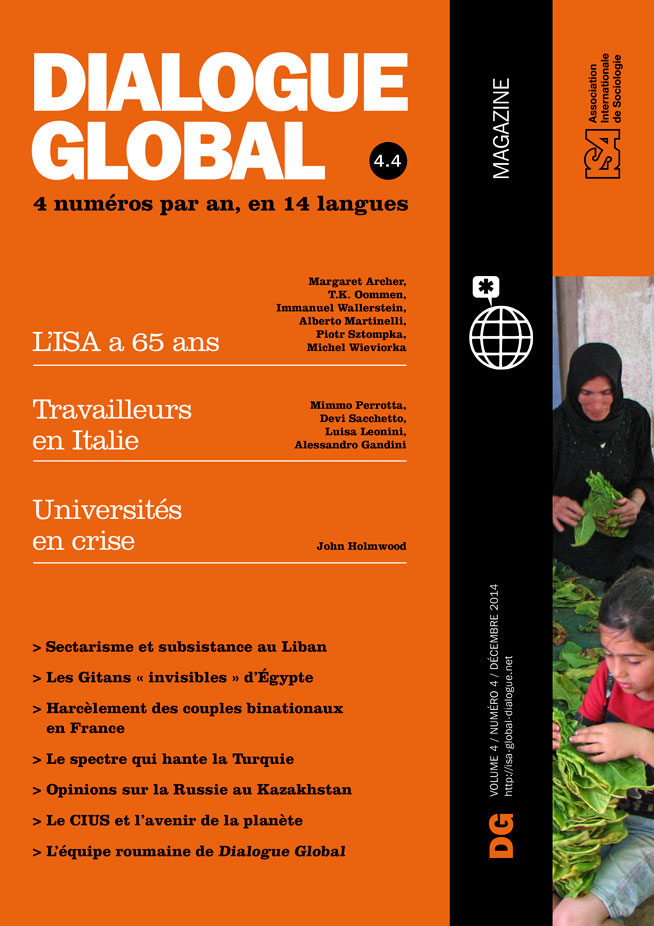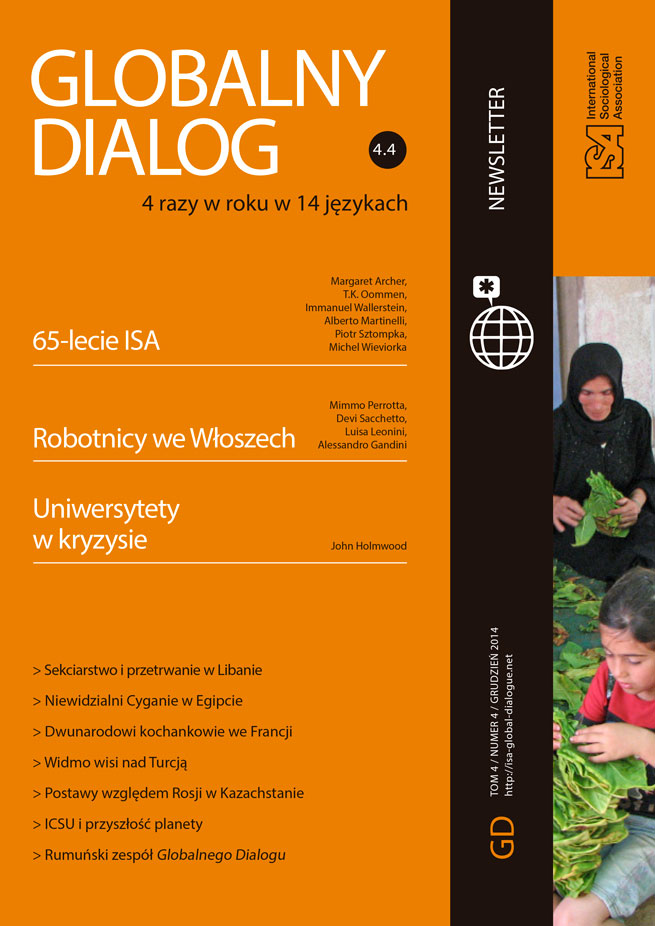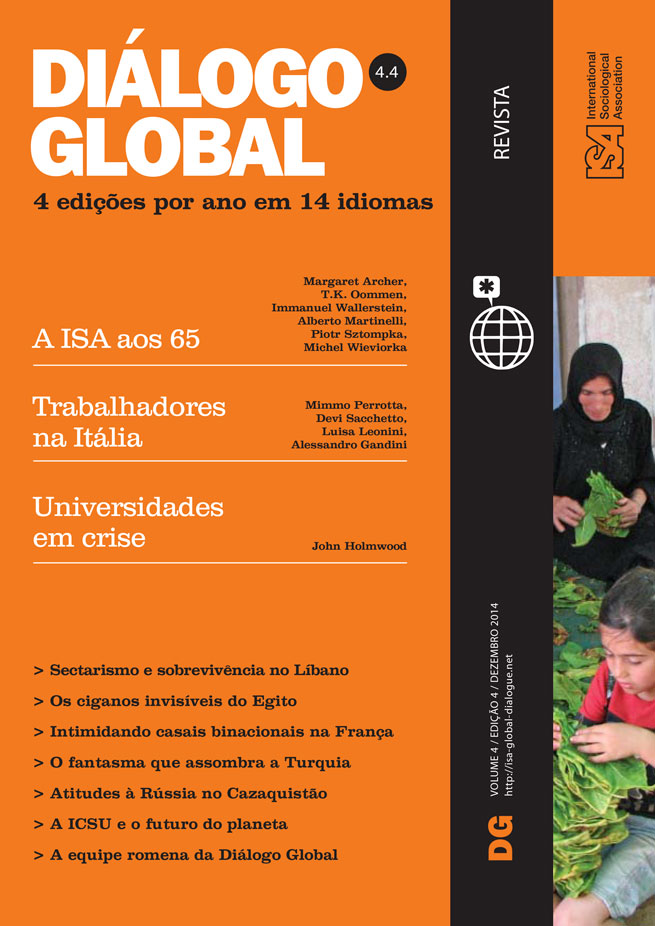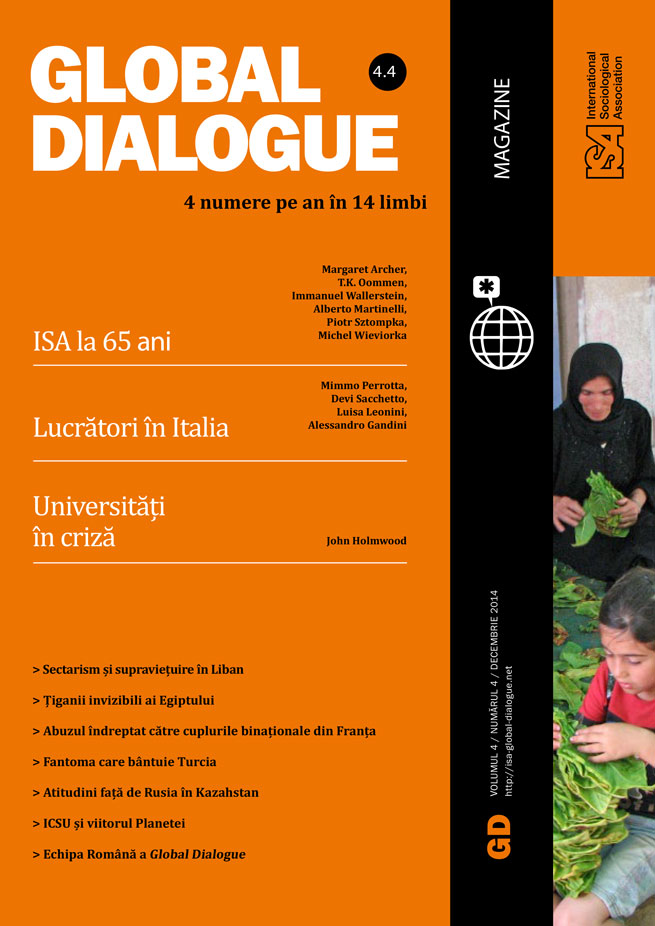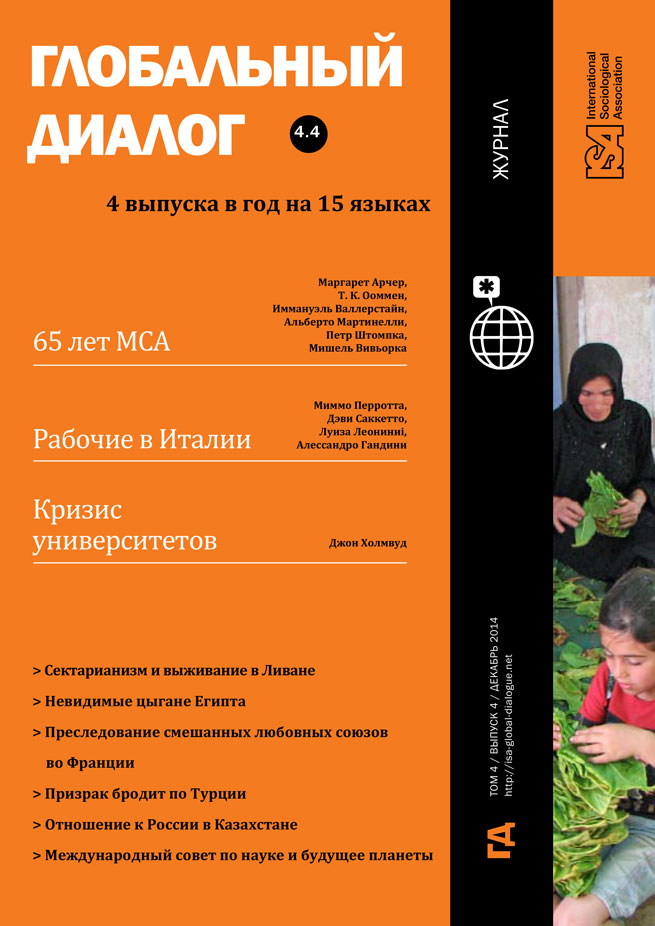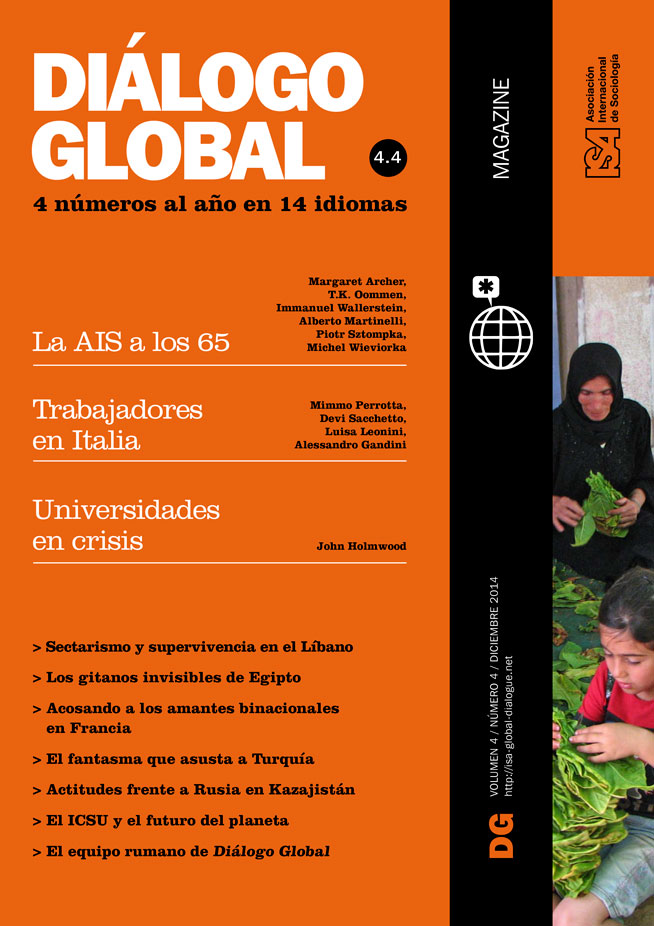Striking Against Cooperatives: Migrants Lead the Way
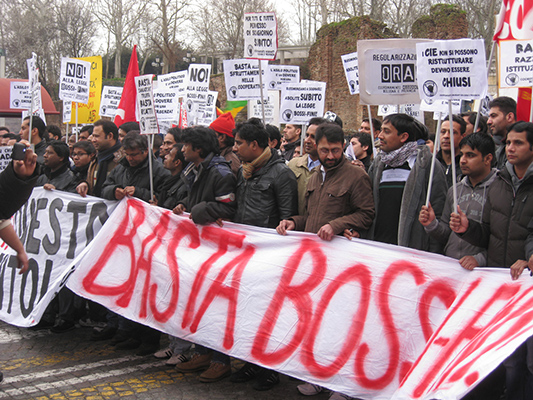
December 12, 2014
The national Italian Strike Commission supervises and controls the right to strike, and protects consumers against strikes in the so-called public services – essential transportation, vital health facilities, local and national emergencies. In 2013, following strikes in the logistic sector, the Commission ruled that milk is a basic necessity; as a result, interrupting the transport of any brand of milk – no matter how many brands are still available – is considered an interruption of an essential public service. When a few hundred migrant workers who were employed by a cooperative sub-contracted to a firm named Granarolo Logistics, an Italian food company with headquarters in Bologna, went on strike, the Commission vetoed their action. But many brands of milk are available at any Italian supermarket; milk may be a basic necessity, but it is difficult to describe the Granarolo brand as indispensable.
Italy’s cooperatives were formed as a form of self-defense in the late nineteenth century by workers who hoped to avoid both the worst forms of exploitation and emigration from Italy. By the early 1920s, the cooperative system was so firmly established, particularly in Northern and Central Italy, that even the fascist regime did not dare destroy it. However, in recent decades cooperatives have proliferated, and their participation in new activities expanded as they began to serve as sub-contractors to large firms. Cooperatives have increasingly responded to the requests of companies who farm out large chunks of their operations.
With this shift, working conditions within cooperative – for both partner-workers and non-partner-workers – have worsened, while cooperative democracy and participation among the partners and the steering committees of cooperatives have deteriorated. The segmentation of the workforce along ethnic lines is often a first step leading to the disintegration of solidarity within any cooperative. In 2011 the workforce of Italy’s 43,000 cooperatives amounted to about 1.3 million people, about 7.2% of the country’s gainfully employed persons. Their yearly turnover amounted to 140 billion euros, or 7% of the Italian GDP. Cooperatives are important in logistics, large retail, construction, and auxiliary personal and company services. In the logistic sector about one quarter of the total workforce is employed by cooperatives, which function as subcontractors of national and multinational enterprises. In the logistic sector some cooperatives play the role of legally authorized temporary manpower agents.
Many companies outsource larger and larger segments of their production process to cooperatives, to reduce costs and to increase competitiveness – and cooperatives have less and less room to defend equal rights even among partners, let alone non-partners. In large areas of Northern Italy, local public institutions, cooperatives, and trade unions are closely linked, adopting similar if not overlapping political positions aiming to preserve “social harmony,” and to support local industrial interests. Catholic and former communist cooperatives find themselves now clustered in the same association, “L’alleanza delle cooperative italiane” (The Alliance of Italian Cooperatives), which includes over 90 per cent of all Italian cooperatives. They all have to submit to the imperatives of efficiency. Legacoop, the former communist and the most important Confederation of the “Alliance”, also owns one of the biggest temporary work agencies in Italy, Obiettivo Lavoro.
The porters’ campaign in the cooperatives working for Granarolo Logistics is only one of a series of protests and strikes affecting supplies and communications in Northern Italy in 2011-2014. Many of them migrants from North Africa, over the last ten years increasing numbers have been employed by sub-contracting cooperatives. In some cases, striking migrants were fired; they run the risk of losing their Italian, residence rights, thereby immediately becoming undocumented aliens.
The first significant protest started at Piacenza, not far from Milan, in the summer of 2011, when workers, mostly migrants, working in cooperatives subcontracted to a large transport company downed tools to demand higher wages, complaining of a speed-up and lack of rights. The official Italian trade unions kept the strikers on hold. However, the strike at this subcontracting cooperative succeeded: workers managed to gain a national contract, wage increases, holidays, and sick pay, a success which inspired subsequent industrial action.
The most important campaign took place in 2012, at an Ikea warehouse in Piacenza. Cooperative workers, mostly from North Africa, asked for better wages, a slower work pace, and a regular labor contract. Workers went on strike, sitting down in front of the Ikea warehouse. The police were called in, beat the workers, and broke up the sit-in. After a few months of on-and-off industrial action and sit-ins in front of Ikea shopping centers at shopping malls across Italy, workers managed to obtain better working conditions. Their example soon spread to other Ikea shopping centers. This movement was marked by conspicuous work stoppages, sit-ins, and demonstrations in many transport hubs in Italy’s industrial heartland, including Piacenza, Bologna, Padua, Verona. University students, young occasional workers, and militants belonging to leftist social centers have helped workers during these strikes and demonstrations, protesting in particular against the use of cooperatives as a source of cheap temporary labor. Nevertheless, this campaign’s success stemmed largely from its reliance on channels of communication among North African neighborhoods, and from the inspiration they gained from the massive Arab Spring demonstrations.
Many migrant workers were only too familiar with the production cycles in subcontracting cooperatives, and therefore were able to minimize losses in wages while maximizing economic damage for the companies. Moreover, they worked closely with rank-and-file trade unionists and activists. But many migrant workers are looking for new ways to organize: they see traditional trade unions as engaged in maintaining the status quo, while permitting managers to farm out operations. Not surprisingly, workers want to get rid of the system of subcontracting cooperatives, as they believe that “it is better to confront the company directly.”
However, these events do not appear to have prompted second thoughts within the Italian cooperative movement as a whole, despite a widespread conviction among activists that subcontracting has little to do with traditional cooperatives. Stated briefly, the cooperative movement in Italy has diverged considerably from its initial aims and ideals. Migrant workers are reminding everyone of this divergence – and on October 16, 2014 another general strike of logistic sector workers was widely successful.
Devi Sacchetto, University of Padova, Italy <devi.sacchetto@unipd.it>


